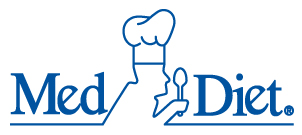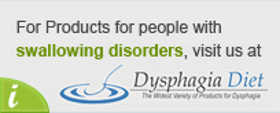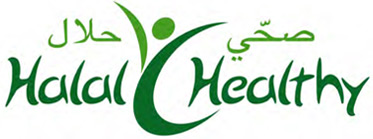Your shopping cart is currently empty.
Bariatric Surgery Resources
Bariatric refers to the branch of medicine that deals with the causes, prevention, and treatment of obesity. Individuals with a BMI (Body Mass Index) exceeding a healthy range have a much greater risk of a wide range of medical issues. These include heart disease, diabetes, many types of cancer, asthma, obstructive sleep apnea and chronic musculoskeletal problems.Bariatric surgery (weight loss surgery) includes a variety of procedures options. Weight loss is achieved by reducing the size of the stomach with an implanted medical device (gastric banding) or through removal of a portion of the stomach (sleeve gastrectomy or biliopancreatic diversion with duodenal switch) or by resecting and rerouting the small intestines to a small stomach pouch (gastric bypass surgery).
The U.S. National Institutes of Health recommends bariatric surgery for obese people with a body mass index (BMI) of at least 40, and for people with BMI 35 and serious coexisting medical conditions such as diabetes. Research is emerging that suggests bariatric surgery could be appropriate for those with a BMI of 35 to 40 with no co-morbidities or a BMI of 30 to 35 with significant co-morbidities.
Weight loss may be recommended prior to the surgery. After the surgery, nutritional needs can be altered depending on the type of bariatric surgical intervention. Post-surgical bariatric patients should receive detailed instruction on diet.
Helpful Resource for Additional Information:
- Consumer Guide to Bariatric Surgery - www.yourbariatricsurgeryguide.com/
- Mayo Clinic - www.mayoclinic.com/
- American Society of Bariatric Pyhsicians - www.ASBP.org/
PKU Resources
Phenylketonuria (PKU) is a rare condition in which a baby is born without the ability to properly break down an amino acid called phenylalanine.- National PKU Alliance - http://www.npkua.org
- PKU News - http://www.pkunews.org
- Children’s PKU Network - http://www.pkunetwork.org
Low Protein/Renal Disease Resources
Healthy kidneys function to remove extra water and wastes, help control blood pressure, keep body chemicals in balance, keep bones strong, tell your body to make red blood cells and help children grow normally. Chronic Kidney Disease (CKD) occurs when kidneys are no longer able to clean toxins and waste product from the blood and perform their functions to full capacity.National guidelines for kidney disease suggest a daily protein intake of 0.75 grams per kilogram of body weight for mild to moderate CKD (Stages 1, 2 and 3). In more severe kidney disease (Stages 4 and 5), the guidelines suggest considering 0.6 grams of protein per kilogram each day. Some doctors may advise even lower levels.
Other nutrients that may require closer attention include phosphorous, calcium, potassium, sodium and water.
Helpful Resource for Additional Information:
- National Kidney Foundation - www.kidney.org/
- National Kidney and Urologic Diseases Information Clearinghouse - http://kidney.niddk.nih.gov/kudiseases/pubs/yourkidneys/
- Medline Plus - www.nlm.nih.gov/medlineplus/kidneydiseases.html
- Davita Dialysis Centers - www.davita.com/
Celiac Disease/Wheat Allergy and Gluten Free Resources
Celiac disease is a digestive disorder triggered by the consumption of the protein gluten, which is found in breads, pasta, cookies, crusts and many other foods containing wheat, barley or rye. People with celiac disease who eat foods containing gluten experience an immune reaction in their small intestines, causing damage to the small intestine that leads to an inability to absorb certain nutrients. Celiac disease can cause abdominal discomforts or unexplained weight loss. The decreased absorption of nutrients that occurs with untreated celiac disease can eventually cause vitamin deficiencies that deprive the body of important nourishment. No treatment can cure celiac disease. However, the disease can be managed by avoiding all gluten containing foods.Wheat allergy is sometimes confused with celiac disease. People with a wheat allergy are allergic to all the proteins found in wheat - not specifically the gluten. So a wheat allergy is an allergic reaction to foods containing wheat. Avoiding wheat is the primary treatment for wheat allergy. Medications may be necessary to manage an allergic reaction if wheat is accidently consumed.
Gluten Free foods will also be wheat free. Wheat free foods may not necessarily be gluten free as they may still contain rye or barley.
Helpful Resources for Additional Information:
- Celiac Disease Foundation - www.celiac.org
- What is Celiac Disease (Wikipedia article) - http://en.wikipedia.org/wiki/Coeliac_disease
- The National Foundation for Celiac Awareness (NFCA) - www.celiaccentral.org
- Celiac Sprue Association - www.csaceliacs.org
- Mayo Clinic - www.mayoclinic.com
- National Digestive diseases Information - www.digestive.niddk.nih.gov/ddiseases/pubs/celiac/
- Celiac Disease and Gluten Free Diet Information - www.celiac.com
- Wheat Allergy - www.wheat-free.org/wheat-allergy.html
- Web MD - www.webmd.com/allergies/guide/wheat-allergy
Diet Supplement Resources (Wound Care & Bowel Management)
GI HealthDietary fiber offers many benefits. Most adults consume an average of 15 grams of fiber each day which is about half the recommended intake for fiber. An adequate fiber intake promotes bowel regularity, blood sugar control, helps with weight management and reduces risk for some chronic diseases.
Helpful Resource for Additional Information:
- Mayo Clinic - www.mayoclinic.com/
- ehealthMD - www.ehealthmd.com/
Some acute and chronic medical conditions may require an increased intake of select nutrients to help promote healing or prevent further decline. Unintended weight loss, pressure ulcers and chronic wounds are some instances where additional nutrition may be advised.
Increased calories may be required for added energy to gain weight, protect lean muscle mass and heal wounds. Protein intake is often increased when healing pressure ulcers and other chronic wounds. Protein is important for tissue repair, immunity and fueling many other bodily processes. Select vitamins and minerals can also play a role in healing and improving overall nutritional status.
Helpful Resource for Additional Information:
- Mayo Clinic - www.mayoclinic.com/
- National Pressure Ulcer Advisory Panel - www.NPUAP.org/
- American Dietetic Association - www.eatright.org/
High Blood Pressure/Heart Disease/Low Sodium Diet Resources
Heart disease is the leading cause of death for both men and women. For people with heart disease, studies have shown that lowering cholesterol and blood pressure levels can reduce the risk of:- Dying from heart disease.
- Having a nonfatal heart attack.
- Needing heart bypass surgery or angioplasty.
- For people without heart disease, lowering cholesterol and blood pressure levels can reduce the risk for developing heart disease.
Choosing healthful meal and snack options can help you avoid heart disease and its complications. Be sure to eat plenty of fresh fruits and vegetables. Eating foods low in saturated fat and cholesterol and high in fiber can help prevent high blood cholesterol. Limiting salt or sodium in your diet can also help lower your blood pressure.
Helpful Resource for Additional Information:
- American Heart Association - www.heart.org/HEARTORG/
- Centers for Disease Control & Prevention - www.cdc.gov/heartdisease/
- Medline Plus - www.nlm.nih.gov/medlineplus/heartdiseases.html
- Mayo Clinic - www.mayoclinic.com/health/heart-disease/DS01120
- Web MD - www.webmd.com/heart-disease/default.htm
Halal Resources
Halal Healthy® is a program of Med-Diet, Inc. that focuses on providing support and products for the Halal needs of foodservice, C-Store and the service industry.We carry a wide variety of brands that include both large and small manufacturers. We stock many low volume Halal items. Our company creates a one stop shop for products that are not easily accessible to foodservice.
Learn more about Halal Healthy® on our Halal Resources page.







